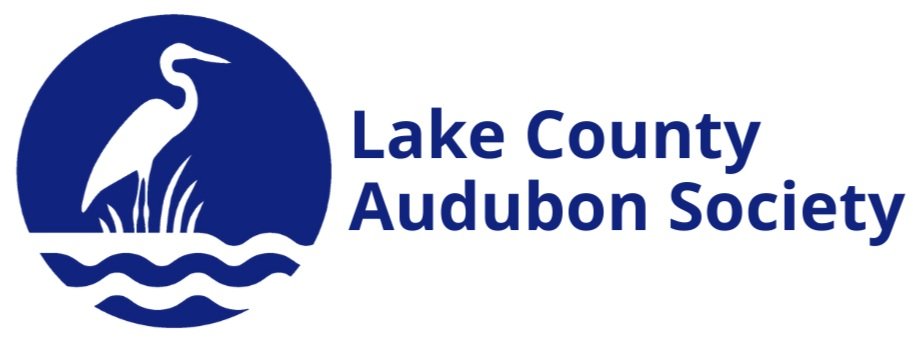Captive-Reared Piping Plovers Hit the Beach in Waukegan!
Sharing Our Shore – Waukegan, in collaboration with our partners at the Illinois Department of Natural Resources and US Fish & Wildlife Service, is thrilled to announce the release of four captive-reared piping plover fledglings back into the wild at a beach in Waukegan.
On Monday, July 21, 2025, Ahdaab Ali, a biologist with US Fish & Wildlife, released the chicks from the carrier that held them on their journey from Pellston, MI. Members of Sharing Our Shore – Waukegan, a partnership between the City of Waukegan and the Lake County Audubon Society, were on hand to document the special moment and to begin monitoring the two male and two female birds.
Aster, the surviving offspring of Blaze and Pepper, was quick to join the newly released fledglings and the five have been observed foraging and resting together over the past several days, much to the delight of the monitoring teams.
The males were hatched from eggs rescued from a nest at Waugoshance Point, Wilderness State Park. The females came from a nest at Port Inland in the Upper Peninsula.
The eggs were hatched at the captive rearing facility for Great Lakes piping plovers, located at the University of Michigan Biological Station near Pellston, MI. The Detroit Zoological Society manages the facility, which includes incubation and care for abandoned eggs and chicks until they are ready to be released into the wild.
This summer there were a total of 88 unique pairs of plovers breeding in the Great Lakes. The majority are located in Michigan and Waukegan and Chicago each contributed a nesting pair to the overall count. This is the most pairs in a season since ESA listing in 1984 and 7 more than last year's record number.
Volunteers took the opportunity to honor the rich history of Waukegan when choosing names for the birds.
The two males, Ray and Benny, have been named after author Ray Bradbury and entertainer Jack Benny, both of whom were born in Waukegan.
The two females, Dandelion and Genesee, have been named after Ray Bradbury’s semi-autobiographical novel, Dandelion Wine, and the iconic Genesee Theater.
These small shorebirds embody a spirit of hope and determination, serving as ambassadors for Waukegan and far beyond its borders. Communities as far away as Florida, Louisiana, North Carolina, and even the Yucatan Peninsula in Mexico are now connected to our piping plover stories.
“The release of these captive reared fledglings is a major accomplishment for our volunteers and for the City of Waukegan” said Carolyn Lueck, President of Lake County Audubon. “This is a huge opportunity to expand the breeding population in Lake County."
The Waukegan community has embraced the piping plover family through various city and community partnerships. These partnerships include library programs, murals, Park District summer camps, beach cleanups. Even the 2025 Waukegan City Sticker boasts an image of a piping plover; sporting the orange flag on its leg, indicating it’s part of the endangered Great Lakes population.
Aster, Benny, Dandelion, Genesee and Ray will spend the next few weeks gaining weight and honing their flight skills. Their journeys will continue south, where they will search for protected beaches that can sustain them through the winter. We have high hopes that some or all of these fledglings will survive migration and return to Waukegan next spring to raise families in this extraordinary habitat.
The site in Waukegan was chosen for its abundant productive shoreline habitat and ample space for additional pairs of piping plovers to nest. The current breeding pair, Blaze and Pepper, nest on a restricted beach, resulting in minimal human disturbance. The presence of the Sharing Our Shore – Waukegan monitoring team, already in place to observe this season’s nesting pair, was a crucial factor in the decision to bring the four fledglings to Lake County.
When asked how the public can help plovers, Lueck shares, “You can help wildlife by Sharing the Shore: respect nesting boundaries, keep dogs off the beach, and take your trash with you when you leave the beaches. But, equally important,” she continues, “share the story of our Waukegan piping plovers with your families and friends. When we care about and protect the habitat for the piping plovers, we also protect the habitat for all the flora and fauna – and people – that share their space!”
The newly opened Waukegan History Museum at the Carnegie, located at 1 N. Sheridan Rd in downtown Waukegan, will host the Sharing Our Shore – Waukegan special art exhibition “Through the Eyes of the Piping Plovers: the Flora, Fauna & People of the Waukegan Shores” September 5th through October 18th. The exhibit showcases work by Heeyoung Kim and Brushwood Botanical Artists, National Audubon Award-winning photographer Steve Jessmore, and art and photographs contributed by the Sharing Our Shore-Waukegan monitoring team. There will also be interactive exhibits, programs and lectures suitable for all ages.
Lake County Audubon Society, through the SOS-W program, recruits and coordinates volunteers for summer Piping Plover monitoring. Each nesting season from May to August, volunteer monitors record their observations of Piping Plover nesting activity and spend hours at the beach, taking different shifts to watch over these endangered shorebirds. Their observations contribute significantly to the public outreach and educational programs offered to the community.
